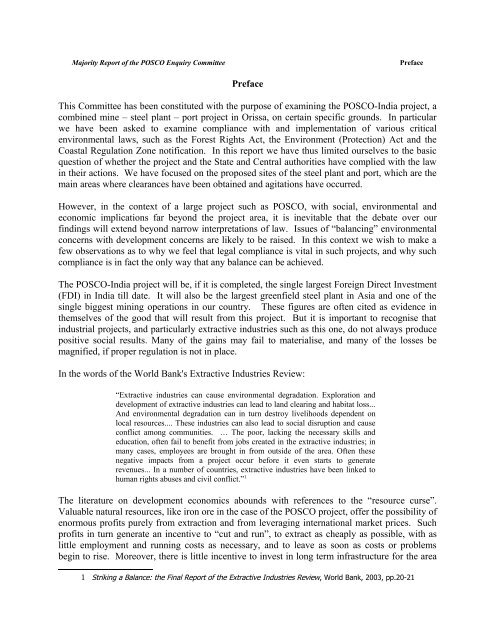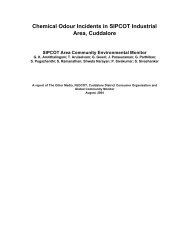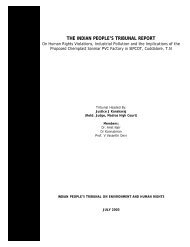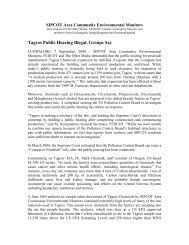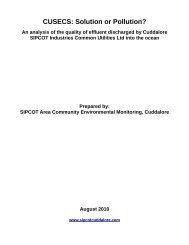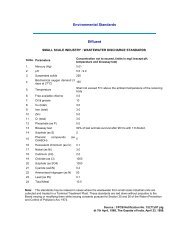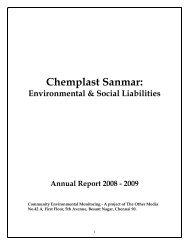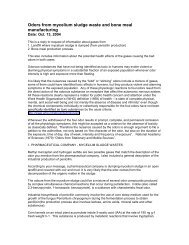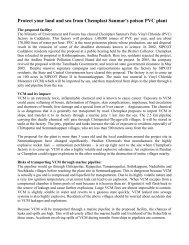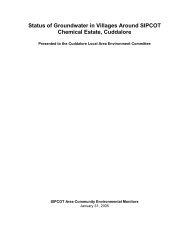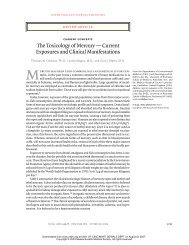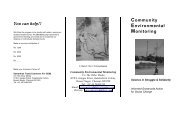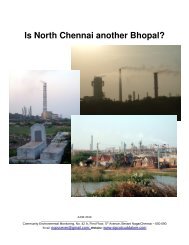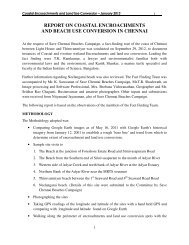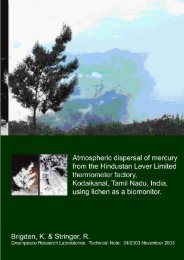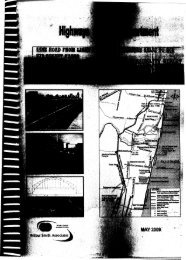Majority Report of the Committee Constituted to ... - Forest Rights Act
Majority Report of the Committee Constituted to ... - Forest Rights Act
Majority Report of the Committee Constituted to ... - Forest Rights Act
You also want an ePaper? Increase the reach of your titles
YUMPU automatically turns print PDFs into web optimized ePapers that Google loves.
<strong>Majority</strong> <strong>Report</strong> <strong>of</strong> <strong>the</strong> POSCO Enquiry <strong>Committee</strong> Preface<br />
Preface<br />
This <strong>Committee</strong> has been constituted with <strong>the</strong> purpose <strong>of</strong> examining <strong>the</strong> POSCO-India project, a<br />
combined mine – steel plant – port project in Orissa, on certain specific grounds. In particular<br />
we have been asked <strong>to</strong> examine compliance with and implementation <strong>of</strong> various critical<br />
environmental laws, such as <strong>the</strong> <strong>Forest</strong> <strong>Rights</strong> <strong>Act</strong>, <strong>the</strong> Environment (Protection) <strong>Act</strong> and <strong>the</strong><br />
Coastal Regulation Zone notification. In this report we have thus limited ourselves <strong>to</strong> <strong>the</strong> basic<br />
question <strong>of</strong> whe<strong>the</strong>r <strong>the</strong> project and <strong>the</strong> State and Central authorities have complied with <strong>the</strong> law<br />
in <strong>the</strong>ir actions. We have focused on <strong>the</strong> proposed sites <strong>of</strong> <strong>the</strong> steel plant and port, which are <strong>the</strong><br />
main areas where clearances have been obtained and agitations have occurred.<br />
However, in <strong>the</strong> context <strong>of</strong> a large project such as POSCO, with social, environmental and<br />
economic implications far beyond <strong>the</strong> project area, it is inevitable that <strong>the</strong> debate over our<br />
findings will extend beyond narrow interpretations <strong>of</strong> law. Issues <strong>of</strong> “balancing” environmental<br />
concerns with development concerns are likely <strong>to</strong> be raised. In this context we wish <strong>to</strong> make a<br />
few observations as <strong>to</strong> why we feel that legal compliance is vital in such projects, and why such<br />
compliance is in fact <strong>the</strong> only way that any balance can be achieved.<br />
The POSCO-India project will be, if it is completed, <strong>the</strong> single largest Foreign Direct Investment<br />
(FDI) in India till date. It will also be <strong>the</strong> largest greenfield steel plant in Asia and one <strong>of</strong> <strong>the</strong><br />
single biggest mining operations in our country. These figures are <strong>of</strong>ten cited as evidence in<br />
<strong>the</strong>mselves <strong>of</strong> <strong>the</strong> good that will result from this project. But it is important <strong>to</strong> recognise that<br />
industrial projects, and particularly extractive industries such as this one, do not always produce<br />
positive social results. Many <strong>of</strong> <strong>the</strong> gains may fail <strong>to</strong> materialise, and many <strong>of</strong> <strong>the</strong> losses be<br />
magnified, if proper regulation is not in place.<br />
In <strong>the</strong> words <strong>of</strong> <strong>the</strong> World Bank's Extractive Industries Review:<br />
“Extractive industries can cause environmental degradation. Exploration and<br />
development <strong>of</strong> extractive industries can lead <strong>to</strong> land clearing and habitat loss...<br />
And environmental degradation can in turn destroy livelihoods dependent on<br />
local resources.... These industries can also lead <strong>to</strong> social disruption and cause<br />
conflict among communities. … The poor, lacking <strong>the</strong> necessary skills and<br />
education, <strong>of</strong>ten fail <strong>to</strong> benefit from jobs created in <strong>the</strong> extractive industries; in<br />
many cases, employees are brought in from outside <strong>of</strong> <strong>the</strong> area. Often <strong>the</strong>se<br />
negative impacts from a project occur before it even starts <strong>to</strong> generate<br />
revenues... In a number <strong>of</strong> countries, extractive industries have been linked <strong>to</strong><br />
human rights abuses and civil conflict.” 1<br />
The literature on development economics abounds with references <strong>to</strong> <strong>the</strong> “resource curse”.<br />
Valuable natural resources, like iron ore in <strong>the</strong> case <strong>of</strong> <strong>the</strong> POSCO project, <strong>of</strong>fer <strong>the</strong> possibility <strong>of</strong><br />
enormous pr<strong>of</strong>its purely from extraction and from leveraging international market prices. Such<br />
pr<strong>of</strong>its in turn generate an incentive <strong>to</strong> “cut and run”, <strong>to</strong> extract as cheaply as possible, with as<br />
little employment and running costs as necessary, and <strong>to</strong> leave as soon as costs or problems<br />
begin <strong>to</strong> rise. Moreover, <strong>the</strong>re is little incentive <strong>to</strong> invest in long term infrastructure for <strong>the</strong> area<br />
1 Striking a Balance: <strong>the</strong> Final <strong>Report</strong> <strong>of</strong> <strong>the</strong> Extractive Industries Review, World Bank, 2003, pp.20-21


